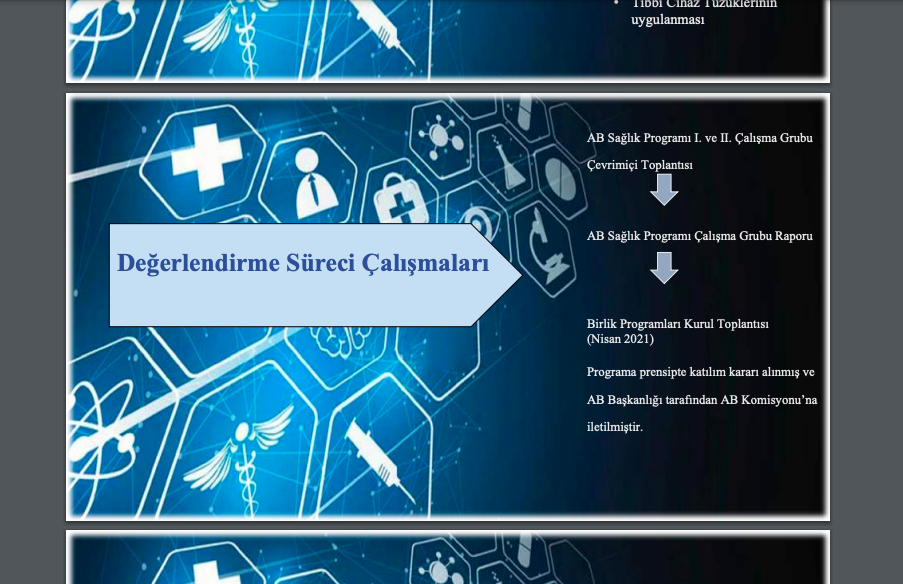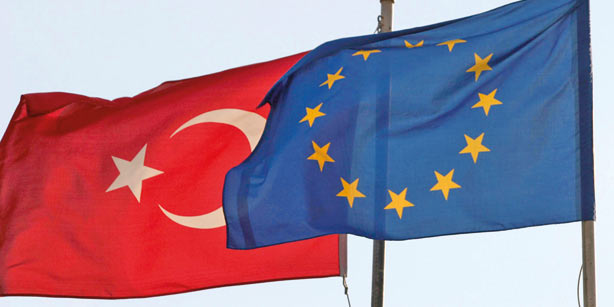Levent Kenez/Stockholm
Turkey is unable to cover the participation costs of several EU-initiated programs, with the result that Turkish universities, private companies and research institutions are unable to benefit from various funding opportunities, according to a parliamentary committee document obtained by Nordic Monitor.
On November 10 Foreign Ministry bureaucrats briefed lawmakers on EU programs in effect during the 2021-2027 period at a meeting of a parliamentary committee, which convened for evaluation of the agreement that outlines specific arrangements for the implementation of the EU’s financial assistance to candidate Turkey, popularly known as the IPA (Instrument For Pre-Accession Assistance).
Pre-accession financial assistance is allocated by the EU to candidate countries in the form of a grant or non-recourse loan. In addition to grants, there are multiple EU programs that are created on issues deemed important by the EU, open to all EU members, candidates and even countries not in Europe. However, countries are required to pay contribution fees to participate in these specific programs, unlike beneficiary institutions, universities, chambers and nongovernmental organizations.
Minutes of the parliamentary committee meeting on why Turkey did not join the EU4health program:
Contribution fees are set by the European Commission, and member states pay more according to their national incomes, whereas candidate countries are allowed to contribute less regardless of their incomes.
However, Bülent Özcan, director-general for financial cooperation and project implementation at the Turkish Foreign Ministry’s Directorate for EU Affairs, told lawmakers that Turkey decided against involvement in some of the programs including one related to health since the contribution costs were high, claiming that the Ministry of Health did not find the project feasible.
The health program that Özcan was referring to was EU4Health, the EU’s ambitious health response to the COVID-19 pandemic and the EU’s overall health challenges. The EU will make €5.3 billion available over the next seven years to improve and foster health in the union to reduce the burden of communicable and non-communicable diseases. The World Health Organization also welcomed EU4Health, which will finance strategies aimed at reducing the fragmentation and vulnerability of medical product supply chains in Europe.
Deputy from the main opposition party and doctor Fikret Şahin asked on what grounds Turkey finds unfeasible a health program that would provide support for domestic medicine and medical device production and innovation, considered strategic investment areas, and asked Özcan how much of a contribution was demanded from Turkey.
Declining to provide the figures, Özcan stated that Turkey did not participate in several programs because Turkey did not have a say in determining the content of the projects and would not be involved in the management of the programs. However, he revealed that following an evaluation by the Presidency’s Strategy and Budget Department, Turkey decided not to participate. He also claimed that health expenditures were an important budget item during the pandemic.
The claim that the health expenditures made during the pandemic are a reason not to participate in the EU project contradicts the official discourse of Turkish President Recep Tayyip Erdoğan. Aside from paying the participation fee in installments, Turkey boasted of providing medical supplies to many countries including the US, the UK, Spain and Italy, during the pandemic. Turkey also donated a significant amount of Chinese-made vaccines to African and Middle East countries. Erdoğan’s office even published a book quoting President Erdoğan as saying that the health systems of many European countries and the US had collapsed, that people were being treated in hospital corridors and that many people died as a result.
Another opposition lawmaker and doctor, Aylin Cesur, claimed that Turkey would miss many opportunities by not participating in such a prestigious project on health, an area in which she said Turkey is ambitious, implying that she did not believe the Ministry of Health was reluctant to take part.

Nordic Monitor has learned that the Ministry of Health had already held a series of internal meetings on EU4health and briefed its experts on the upcoming program. According to a presentation document prepared by the ministry, the ministry informed the EU Commission via the Turkish Foreign Ministry about his intention to join the program.
Meanwhile, Özcan stated that Turkey would apply to the EU for 47 projects amounting to 250 million euros for the 2023 allocation. However, he added that the EU’s financial assistance to Turkey is 208.5 million euros for the next year. Considering the assistance provided for Turkey since 2002, it is less than half the annual average. Turkey has been constantly expressing its discomfort with this to EU leaders.
Text of the Financial Framework Partnership Agreement between the European Commission and Turkey:












